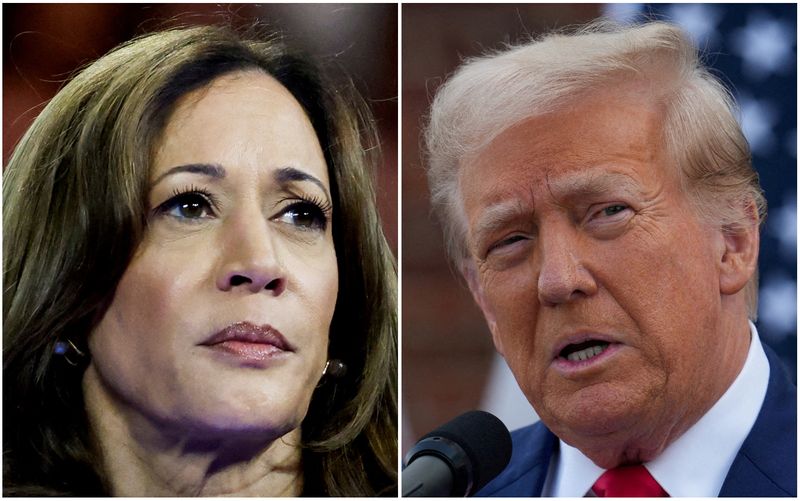Investing.com - The US dollar has risen strongly in October as traders have priced in the rising probability of a Trump win in the betting markets, said Standard Chartered (OTC:SCBFF), which means a Harris victory could fuel a substantial repricing.
At 04:05 ET (08:05 GMT), the Dollar Index, which tracks the greenback against a basket of six other currencies, traded 0.2% lower to 104.095, but remains close to three-month highs, and is over 3% higher this month.
“We find that the increase in Trump’s election odds accounts for about 60% of the USD’s October gains,” said analysts at Standard Chartered, in a note dated Oct. 23.
The US Presidential election takes place on Nov. 5, with Republican candidate Donald Trump taking on Democratic candidate Kamala Harris.
“The USD may strengthen further if the odds skew even further towards a Trump victory, although we doubt that a rise from, say, 65%-75% odds would have the same impact on the USD as a rise from 45%-55%,” the bank added.
In order for a Trump win to have a big impact on asset market prices from here, we think the Republicans would have to win both the House and the Senate, Standard Chartered said. This would give Trump a lot of fiscal flexibility to again use the reconciliation process to pass tax measures, as was the case in 2017.
Betting-market probabilities of a Republican sweep are close to 50%. Conditional on his winning the presidency, betting markets are pricing a roughly 75% chance of a sweep.
A Harris win with a split Congress could be the biggest market mover, the bank said.
“She would have a hard time getting her tax and social program proposals passed, and the onus would be on the Fed to provide stimulus if there was any sign of US economic weakness,” according to Standard Chartered.
“Given current positioning, a Harris win would likely lead to an unwind of long USD positions.”
Paradoxically, in the event of Harris win and a Democratic sweep, the FX impact could be less well determined.
The FX markets may be unclear on whether to focus on her green and social spending initiatives or the tax increases that would be needed to fund them.
